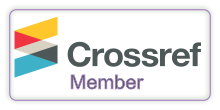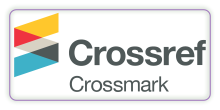ART OF GAMIFICATION: EXPLORING THE TRANSFORMATIVE INFLUENCE OF GAMES ON ENGLISH LANGUAGE TEACHING AND LEARNING
DOI:
https://doi.org/10.29121/shodhgyan.v2.i1.2024.27Keywords:
Language, Learning, Skill, Teaching, Gamification, AcquisitionAbstract [English]
The article explores the intricate dynamics of language acquisition, highlighting the fact that learning a language is a skill-based endeavour rather than just a subject of knowledge. Language learning primarily relies on mastering the fundamental language abilities, encompassing speaking, listening, reading, and writing. The intimate interaction between active and passive abilities, which results in a comprehensive language competency, highlights the interconnection of various talents. Incorporating games into language classrooms is lauded as an innovative and captivating teaching strategy, fostering engagement, and facilitating effective learning experiences. In addition to making language learning engaging, games enhance student’s engagement, teamwork, and the development of relationships. According to the study, games work as a conduit between the theoretical underpinnings of language learning and the actual, pragmatic application of the language. The study also emphasizes the cognitive and psychological advantages of using games to aid with language learning. It highlights how playing games fosters a joyful and positive learning atmosphere, making language learning engaging and entertaining. The research shows that games are a fantastic equalizer since they reduce stress, foster social interaction, and allow students of all skill levels to play and succeed. The research discusses the benefits of games for language learning and emphasizes the importance of bringing together different language skills in a learner-centered approach. Additionally, it highlights how games can help develop cooperative learning environments, lessen learning anxiety, and improve communicative competence. Thus, this study presents games as a potent and useful instrument in the toolset for teaching English, offering a comprehensive strategy for language learning that surpasses conventional techniques. The study emphasizes the need for innovative and engaging strategies to meet the demands of the rapidly evolving world. It highlights the value of creativity in educational methods and adds to the continuing conversation about cutting-edge language teaching approaches.
References
Armstrong, T. (2000). Multiple Intelligences in the Classroom. USA: Association for Supervision and Curriculum Development.
Gardner, H. (2006). The Development and Education of the Mind: The Selected Works of Howard Gardner. New York: Routledge. DOI: https://doi.org/10.4324/9780203019689
Hadfield, J. (1990). Intermediate Communication Games. England: Longman.
Hadfield, J. (1999). Beginners´ Communication Games. England: Longman.
Hadfield, J., & Hadfield, C. (1990). Writing Games. England: Longman.
Harmer, J. (2009). The Practice of English Language Teaching, (4th Ed). Harlow: Longman.
Jenner, E. G. J., & Jebakumar, A. N. (2023). Enhancing Language Skills Through English Novel Instruction. International Journal of Multidisciplinary Research and Growth Evaluation, 4(6), 498-502. https://doi.org/10.54660/.IJMRGE.2023.4.6.498-502 DOI: https://doi.org/10.54660/.IJMRGE.2023.4.6.498-502
Jones, A. (1998). Activities that Build: Self-Esteem, Teamwork, Communication, Anger Management, Self-Discovery and Coping Skills. United States: Rec Room Publishing.
Kumar, G. P. (2016). English Teaching in the Digital Age. In D. S. Frederick, English Language and Literature: Retrospects and Prospects. Tamilnadu, Vergal Publication, 299-236.
Langran, J., & Purcell, S. (1994). Language Games and Activities.
Larsen-Freeman, D. (2000). Techniques and Principles in Language Teaching. New York: Oxford University Press.
Richards, J. C., & Rodgers, T. S. (1986). Approaches and Methods in Language Teaching. New York, Cambridge University Press.
Wright, A., Betteridge, D., & Buckby, M. (2006). Games for Language Learning. Cambridge University Press. DOI: https://doi.org/10.1017/CBO9780511667145
Published
How to Cite
Issue
Section
License
Copyright (c) 2024 Jithin Jenner E G, Dr A Noble Jebakumar

This work is licensed under a Creative Commons Attribution 4.0 International License.
With the licence CC-BY, authors retain the copyright, allowing anyone to download, reuse, re-print, modify, distribute, and/or copy their contribution. The work must be properly attributed to its author.
It is not necessary to ask for further permission from the author or journal board.
This journal provides immediate open access to its content on the principle that making research freely available to the public supports a greater global exchange of knowledge.




























